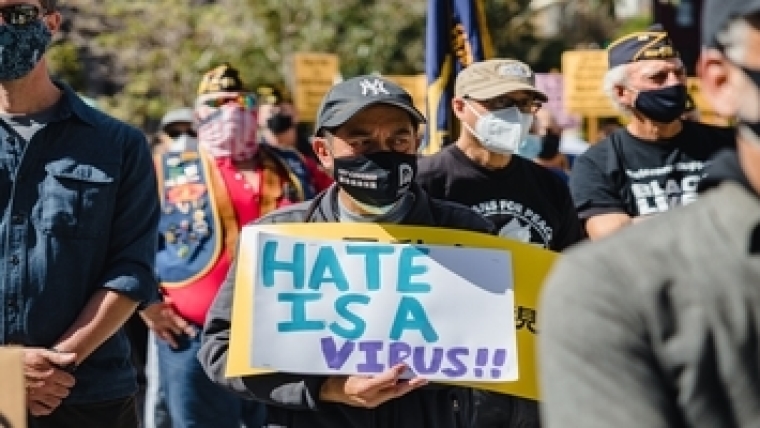
Life is better without resentment, so nobody seeks it out. It just builds up, like mould. Suddenly you’ve got these big stains in your friendships, or in your family, and they don’t seem to come out. That sucks. When all is said and done, we like to like each other.
God is a relational God, so naturally, he created a relational world. We build almost every important thing on relationships. Between people, communities, nations. This is both very beautiful and very dangerous.
“If it is possible, as far as it depends on you, live at peace with everyone.”(Romans chapter 12, verse 18)
We want to keep our relationships breathing, not suffocating. Society depends on it, so I tried to write a three-step guide. I can’t prescribe any universal relationship diet because they’re so diverse. But to keep something alive you also need to know what kills it.
So behold: The worst guide ever.
1) Prioritise your correctness
“They started it, not me.”
“But what did I do wrong?”
“I didn’t even say what they thought I said.”
Someone’s just gotten unreasonably upset with you. It wasn’t like you were trying to pick a fight, it just happened. In fact, they were the ones that brought this up in the first place. Now they’re acting all hurt. Clearly, something’s hit a nerve.
You could take the weak route and go find out what’s wrong. You could apologize, even though you didn’t know they’d react that way. But that would make them think they’re in the right, and that’s just not true at all. That would be admitting defeat.
So be tough and ignore them. Wait for them to come apologize, even if it never happens. They should already know you love them. It’s more important that they know where you stand on this than where they stand with you.
2) Don’t make a big deal
“They’ll get over it. I will too.”
“They were overreacting.”
“It’s such a tiny thing! I don’t want to look childish.”
The unspoken consensus is that as long as you’re staying cool about it, you’re being the sensible one. And as long as at least one party doesn’t feel like it’s a big deal, it probably isn’t that much of a big deal.
Sure, there were some big emotions there whether you bottled them up or not. But reason trumps emotion, right? So as long as you’re being logical, you’re doing the right thing. If the problem stagnates for long enough, you’ll both surely forget about it.
Or maybe they’ve gone and made a really, really big deal over nothing. They were vulnerable with their emotions over the wrong thing at the wrong moment.
You, however, stayed good and calm the whole time. You held power over them right then: They were being raw and you simply held back. Wisdom! You’ve got to love people enough to help them toughen up.
3) Give up
“They don’t even want to speak to me. I can only make this worse.”
“What’s the point in trying?”
“Why should I risk doing anything? What if they shut me down?”
You’ve just taken your sunglasses off and realized how pale and sickly your relationship is looking. It’s been dying for long enough now. That’s the end, right? It’s easier, more painless, less humiliating if you just let it die.
So invent a deadline for change and convince yourself (and everyone around you) that you’ve officially passed it. Let yourself despair.
It’s self care.
Final note
Last year, I was convicted to reach out to an old friend and apologize for my own ugliness. We’d parted on some pretty hideous terms and I’d spent a couple of years or more denying my part in it. I’m pretty sure I’d followed every single step in this guide, actually.
Being honest, it’s unclear whether they cared about the apology. They didn’t apologize in return, either. I was acknowledged, we briefly caught up, we parted ways again. It wasn’t vindicating at all. It was clumsy.
But in continuing to numb myself to the ways I hurt someone else, intentionally or otherwise, I’d be committing first-degree relationship-murder. It wouldn’t hurt me personally, but I’d still knowingly and unnecessarily be someone else’s villain.
The modern self-love message we hear everywhere tells us to protect ourselves from other people. It teaches us that people are the problem, and solving it is as easy as cutting them out.
I used to subscribe pretty heavily to that message, so I know it doesn’t solve anything. It’s easy and comfortable to feel like the hero in your story, but it’s much healthier to admit when you’re not.
Treating people like people starts with humility. Humility starts with repentance.
“The end of a matter is better than its beginning,and patience is better than pride.”(Ecclesiastes chapter 7, verse 8)
When someone genuinely apologizes, they’re not just absolving their guilt. They’re pointing out a big boulder between you and saying,
“Hey. I don’t know about you, but I’d like that gone.”
And even if things seem fixed, they don’t ever have to be. God is a relational God, so naturally, our relationships are important to him. And he’s perfectly capable of rolling some flimsy old rock out of the way. He’s done it before.
And even if things seem fixed, they don’t ever have to be. God is a relational God, so naturally, our relationships are important to him. And he’s perfectly capable of rolling some flimsy old rock out of the way. He’s done it before.

Eleesa Jensen is currently studying Psychology and Education at the University of Auckland. She loves to paint, play guitar, and write as a form of worship and to process her thoughts.